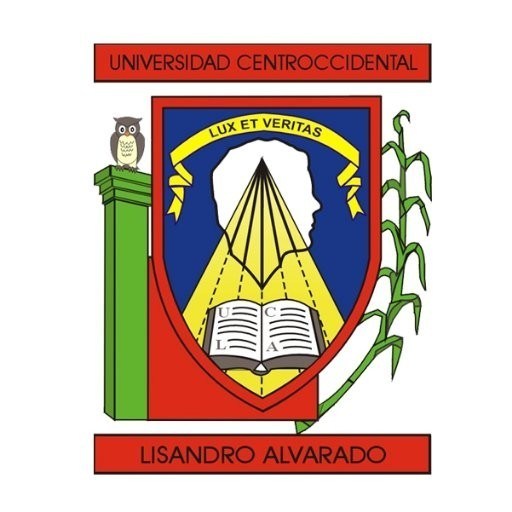Photos of university / #uni_southampton
Description
Advertisement
The Doctor of Business Administration (DBA) is a professional part-time doctoral degree designed to enhance executive and professional practice through the application of sound theory and rigorous research to real and complex issues in business and management.
It provides a structure and a wide range of learning opportunities including formal teaching, group work and research workshops, as well as a community of practice to develop knowledge and understanding of research that is both scholarly and relevant.
The educational aims of the Doctor of Business Administration programme are to enable you to:
* Enhance your performance as a reflective practitioner and to enhance your professional practice.
* Have a sound understanding of the relevant conceptual and theoretical underpinnings of your chosen area of research into business and management, which may have a single discipline or an interdisciplinary focus.
* Have a detailed understanding of applicable techniques for research and advanced academic and management enquiry.
* Create and interpret knowledge through original research of a quality to satisfy review by senior scholars and practitioners and to make a contribution to theory and professional practice.
* Have the ability to conceptualise, design and implement projects for the generation of significant new knowledge or understanding and adjust the project design in the light of unforeseen difficulties.
* Argue an effective, coherent and scholarly case for your chosen research topic, both orally and in writing, including the production of a Doctoral Thesis.
* Have the ability to communicate your ideas and conclusions clearly and effectively to specialists, practising managers and non-specialist audiences.
* Have developed your professional and research competencies sufficient to continue to undertake rigorous and relevant research at an advanced level that contributes to theory and practice in business and management, and to continue a lifetime of self-reflective development.
The DBA is equivalent to a PhD, with some distinct differences. Unlike a PhD which addresses a purely academic question, the research you will engage in will deal with high level strategic business issues and problems. Your research will be conducted from within the organisation of your choice and applied there.
This makes the DBA intellectually stimulating and professionally challenging. Many senior managers and consultants who decide to study a DBA do it simply for the personal challenge.
However, it can facilitate a move to a portfolio career and open the gateway to a life in academia.
Whatever your reason for choosing the DBA, you will benefit from being introduced to the models, theories and concepts from the worlds leading thinkers, which if understood and utilised appropriately, can take your ability to solve business issues to an entirely new level.
Contents
Part one
You will be requested to bring with you to the induction week your self assessment and initial research questions with an outline proposal for your research project.
During the induction week you will meet your supervisory team which will consist of two members from our senior academic team appointed on the basis of their research interests matching your own. With their input, you will be able to refine your thinking around your research question and initial proposal.
You will be asked to visit the School to present your revised development plan to your supervisors six weeks later.
Shortly thereafter, you will take part in a five day assessed research course, where you will be required to submit a 5,000 word essay as part of the module.
During the first two years of the programme, you will have the opportunity to participate in doctoral workshops at which you will present the development of your research thinking and ideas. Your presentation will normally be critiqued by both fellow students and members of academic staff.
Much of your time will be spent working independently on your professional development plan, literature review and research proposal development.
You will also be able to access an impressive range of e-research methods materials online to further enhance your understanding of research.
At the end of the first two years, and of part one of the programme, you will be asked to:
* Present your professional development plan and 5,000 word reflective document supported by a portfolio of evidence.
* Present a 5,000 word literature review and your research proposal.
Part two
In the last two years of your DBA you will continue to attend research workshops and engage with your supervisory team. In addition, you will be required to:
* Write a 70,000 word thesis based on your original research.
* Defend your thesis at a viva.
* Provide evidence of professional development based on the learning experience. This will take the form of a 5,000 word reflective document and a portfolio of evidence demonstrating how the learning has been applied in your professional practice. This will be assessed by your supervisory team.
On successful completion of part two you will be awarded a Doctorate in Business Administration.
Requirements
An important aspect of the entry requirements for this programme is the extent of your work experience (Between 5 and 7 years work). It is likely that you will have at least seven years work experience with a substantial part of this having been within a managerial (or equivalent) role.
You would normally be expected to have a masters level degree (MBA or MSc) with evidence of a good quality dissertation. However, an alternative entry route could be available if you have a professional qualification (eg Fellow of the Chartered Institute of Personnel and Development - FCIPD, Fellow of the Chartered Institute of Marketing FCIM, etc) and a significant period of senior level management experience.
If you do not have English as the language of instruction for your qualifications the University
requirement is for evidence for the equivalent of IELTS 6.5 to be provided.
References
You should provide two references on your suitability for postgraduate study. At least one of the references should be from an academic referee who has taught you at your most recent university. The second reference could be a second academic or employment reference. Personal or character references should usually be additional to the two references described above. Both references should be on formal headed paper and/or with the official seal/stamp of the university or company. A decision on your application can not be made until both references are received.
English Language Requirements
IELTS band: 6.5
IMPORTANT NOTE: Since April 2014 the ETS tests (including TOEFL and TOEIC) are no longer accepted for Tier 4 visa applications to the United Kingdom. The university might still accept these tests to admit you to the university, but if you require a Tier 4 visa to enter the UK and begin your degree programme, these tests will not be sufficient to obtain your Visa.
The IELTS test is most widely accepted by universities and is also accepted for Tier 4 visas to the UK- learn more.
Work Experience
At least 5 year(s) of work experience is required.
Want to improve your English level for admission?
Prepare for the program requirements with English Online by the British Council.
- ✔️ Flexible study schedule
- ✔️ Experienced teachers
- ✔️ Certificate upon completion
📘 Recommended for students with an IELTS level of 6.0 or below.











